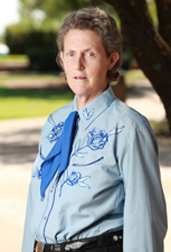
Some animal welfare groups that formerly opposed horse slaughter are now advocating the return of slaughterhouses, according to an article in the January 5 issue of the Wall Street Journal.
According to the U.S. Department of Agriculture, in 2008, following the ban on U.S. equine slaughterhouses, 57,017 horses were shipped to Mexico for slaughter, compared to 11,080 sent in 2006, before the ban.
The inaugural Summit of the Horse, established by United Horsemen and the United Organization of the Horse, attempts to address the issue of unwanted horses this week, at the Southpoint Casino in Las Vegas. Former U.S. Congressman Charlie Stenholm (D-TX), a horse meat industry lobbyist, was the keynote speaker on Tuesday, January 4. Dr. Temple Grandin, who works to advance the welfare of cattle and other meat animals, and included on Time magazine’s list of the world’s 100 most influential people in 2010,  is Wednesday’s featured speaker.
Advocates for the return of slaughter houses contend that a relatively quick end to the lives of unwanted and abandoned horses is preferable to the suffering imposed on them through neglect and starvation.
Animal rights groups seek alternate ways to support unwanted horses or provide euthanization through veterinary supervision.
Meanwhile, taxpayers spent $37 million in 2009 to support nearly 40,000 former free-ranging horses and mules, under the care of the U.S. Bureau of Land Management.
